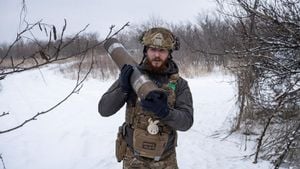Tragedy struck recently in Laos, where six tourists tragically lost their lives due to suspected methanol poisoning, sending shockwaves through the international backpacking community. Among the deceased were Australian teenagers Bianca Jones, 19, and her friend Holly Bowles, who fell ill after drinking potentially tainted alcohol during their vacation. The trio of heartbreaking deaths, including those of British national Simone White and three Danish tourists, has prompted urgent calls for action and transparency from their grieving families.
Bianca was described by her father, Mark Jones, as adventurous and full of dreams, having set off on what was meant to be the trip of a lifetime with Holly. Mark expressed his devastation over his daughter’s passing, saying, “This was meant to be full of lifelong memories. Bianca wanted to explore the world, meet new friends, lead and create change for good.” His heart-wrenching plea extended to the Laotian government, asking them to investigate thoroughly to prevent such tragedies from occurring again, emphasizing the need for safety for young travelers.
A series of events unfolded leading to this tragedy which captivated both local authorities and international media. Initially, travelers became ill at the Nana Backpacker Hostel, where several victims were known to have stayed. Reports indicate they ingested alcohol containing methanol—a colorless, toxic substance commonly found in improperly distilled spirits.
Laos’ government has since detained the owner and staff members of the Nana hostel as investigations are ramped up. Ministry officials have expressed their condolences to the bereaved families, with one spokesperson stating they are “profoundly saddened” by the incidents. They vowed to bring those responsible to justice, yet skepticism looms over how effectively authorities will handle this sensitive issue, according to experts familiar with the region.
Meanwhile, the Australian Department of Foreign Affairs has urged the Lao government to conduct the investigations with transparency. “We are clear with our Lao counterparts about our expectation for thorough investigations,” said DFAT's spokesperson. This call for transparency has found echoing support from fellow backpackers, some of whom launched their investigations to identify potential sources of the toxic alcohol.
A European traveler, who requested anonymity, conducted his survey among more than 20 backpackers who frequented Vang Vieng—where the hostel is located—and found alarming results: the majority of those who fell ill had stayed at the Nana hostel. “Of the 14, all but one said they stayed at the hostel. The one who got sick had been to another bar—lots of people are pointing fingers at Nana,” he reported.
Throughout Vang Vieng, speculation about the source of methanol has made the rounds, with some locals surmising it may be due to cheap, poorly distilled spirits or even intentional adulteration to spike drinks. “Given the number of women who fell ill, there's concern it could have been some sort of drink spiking,” one local tour operator referenced the victims' demographics. This tragic incident has sparked fears among many who see Vang Vieng not just as another travel destination but as a warning.
With the deaths of the tourists, there is urgency for change within Laos—a country heavily reliant on tourism. Recent years have seen efforts to shed the reckless party town reputation of Vang Vieng; yet this incident raises serious questions about the safety and regulation of alcohol being served.
Individual accounts surface from around the area where other visitors speak out about their experiences. Lucy Davison, another tourist, revealed she was hospitalized after consuming what she believed was contaminated alcohol from the very location where the girls were staying. “I spent five days trying to survive, and I am still not sure what really happened.” Her story, along with others', has added to the outcry for accountability.
Families of the victims are combining their voices, collectively demanding not only justice for their loved ones but also improvements to the safety protocols within the hospitality and tourism sectors across Laos. Mark Jones has openly implored, “Young men and women should be able to travel, create their own life experiences and be safe.”
Keith Barney, of the Crawford School of Public Policy at the Australian National University, acknowledged the challenges faced by families seeking justice. “Laos does not have the best track record when it involves investigations like this, especially if powerful interests are at stake,” he explained. Despite the gloomy outlook, there persists hope among bereaved families as well as travelers widely invested in accountability and safety for future tourists.
On social media, campaigns have begun to widely share stories and warnings about the dangers associated with consuming alcohol from unregulated sources. “Stay safe out there. Make sure you know what you’re drinking,” one user implored. Social posts show solidarity for victims, with tags like #SafeTravels gaining traction as more travelers review the lessons learned from this horrific incident.
This story continues to unravel as authorities announce updates and families seek closure. Each day, the memories of these young lives serve as solemn reminders of the inherent risks within the adventure travel scene. What was once viewed as escapism has turned tragic, with families grieving far too early for the beautiful souls lost to methanol poisoning.”



